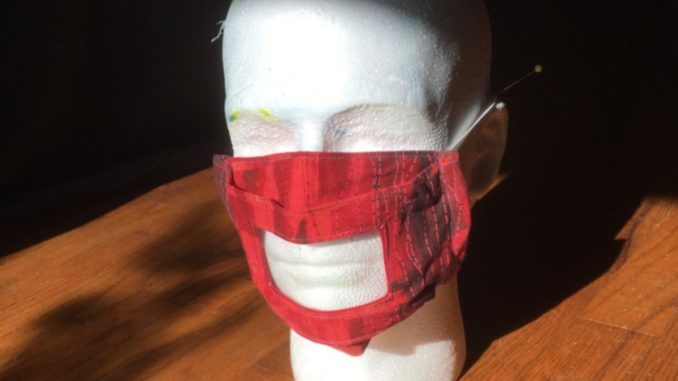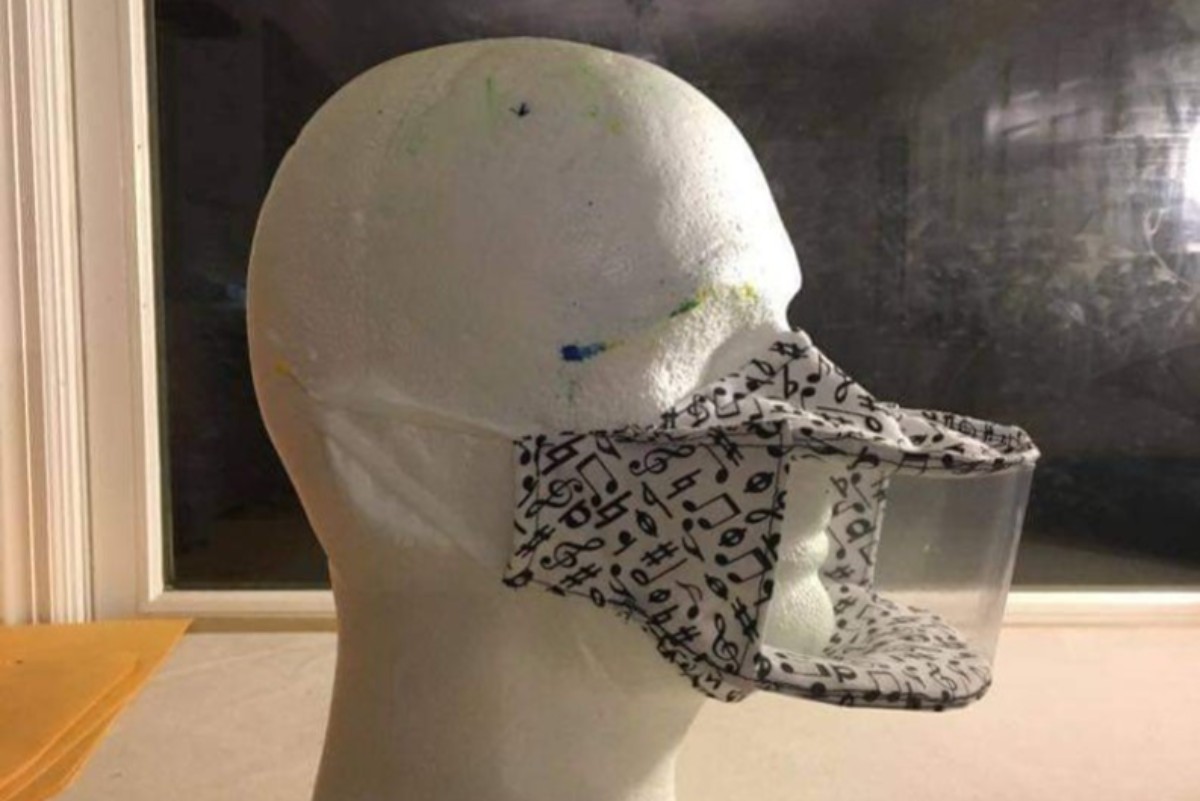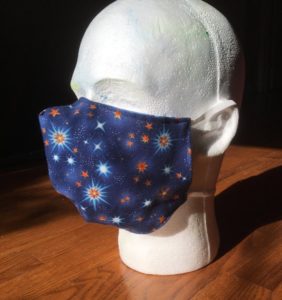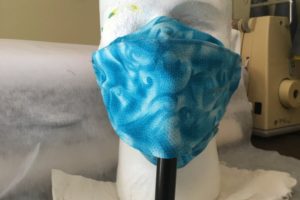
At the start of the semester she woke early in the morning, then headed to teach classes until three. Once three o’clock hit she went home to start sewing. She sewed for hours, made a frozen dinner along the way to tide her over, and eventually she went to bed, just to wake up the next morning to start all over again. This was the daily routine for Michelle “Misha” Winchester, assistant professor of theatre at Truman State University.
“The first week of classes I felt breathless,” Winchester said.
Winchester started making masks in quarantine, some of which she sells on her mission-based Etsy shop.
At first, she and other costumers were sewing masks for medical professionals, but eventually the need for those masks died down and she got to focus on more specialized masks.
Winchester said we should not only encourage everyone to wear a mask, but also address the part of society that we normally don’t think of when it comes to masks.
“I think this summer was all about ‘let’s find a mask that works … for some of us that masks don’t normally work for,’” Winchester said.
Winchester said when she first started making masks for the hard of hearing, she was focused on an all vinyl mask. Soon she realized breathing through that material was nearly impossible, so she decided to make a normal mask with a vinyl window.

Winchester is hard of hearing herself. She said this summer is when she realized how much the masks impacted her ability to communicate and read lips.
She started making masks with the see through window to give to her own students, so she would be able to communicate in the classroom.
Emily Kemp, the University’s costume shop intern, is one of the students who wears the specialized masks to be able to communicate with Winchester in the shop.
“My voice actually carries clearer against the plastic than it would getting muffled through fabric,” Kemp said. “However, there are problems with condensation build-up on the plastic. But, even with fog, a hard of hearing person can still read my lips better than with the normal mask.”
Costume Shop Manager Theresa Dawson said she enjoys wearing the specialized mask because it comforts her to know that people like Winchester, who are hard of hearing, have an easier time understanding her.

Dawson also helped Winchester make the masks for the classroom over the summer.
“It was nice to take some of the stress off of Misha’s shoulders by helping make masks for the students that spend time in the shop,” Dawson said. “Due to COVID-19, my summer was pretty open. So, it was nice just to have something to do.”
Winchester started selling masks on her Etsy, “MishaMakesDreams.” She said the people who were buying them were not only deaf or hard of hearing but also speech therapists and those who work with people on the autism spectrum.
She even sold to preschool teachers who just wanted their students to be able to see them smile.
Winchester said when she gets her hearing aids adjusted she is almost brought to tears by the improvement to her hearing, and by providing masks to people, she is sharing that feeling.
“I understand how it feels to be stuck in that box where you can’t hear anything,” Winchester said.
Winchester said when the American Sign Language mask demand started to decline, she soon had ideas for more specialized masks.
After years of working with theater students she wanted to figure out how to make a mask suitable for singing.
Winchester said the masks we usually wear muffle our voices, so if she made a mask with boning on the top and bottom, it provides more space for the voice to move.
She had one of her musical theater students, Max Richards, try out the first prototype of her singing mask, and he said you can feel the vibrations of your voice on your face if you are singing properly.
Winchester said the duckbill-like singers mask inspired her to try and make something for people who have anxiety, claustrophobia, autism or tactile issues and can’t have the mask fabric up close to their face.
Her singers’ masks have been the first that people have requested in bulk. Schools and churches have asked for her to make masks for their choirs.
She said she made about $2,000 in one month off mask sales, when she was sewing about eight to nine hours a day. She used the profits from those sales to go visit her daughter in California.

Winchester said she has had orders from all over the United States, three from Mexico and about 10 orders from the United Kingdom.
Her time is becoming more limited as the semester continues and she is struggling to find time to make masks on the side, Winchester said.
Winchester said she might have to limit how many masks she sells a week or bring in other people to help.
“I really don’t want to limit my sales because the idea that they are selling so well shows I am meeting a need,” Winchester said. “I am just trying to balance my day job with an Etsy shop.”
Winchester makes all the masks on her Etsy site by herself. She buys the materials, patterns, cuts, sews and ships every mask.
On top of that process, Winchester is teaching two new classes this semester and trying to figure out how to do blended learning.
She said she hopes not to be selling masks forever and she hopes to use her expertise in costuming to keep her custom costume Etsy store running.
